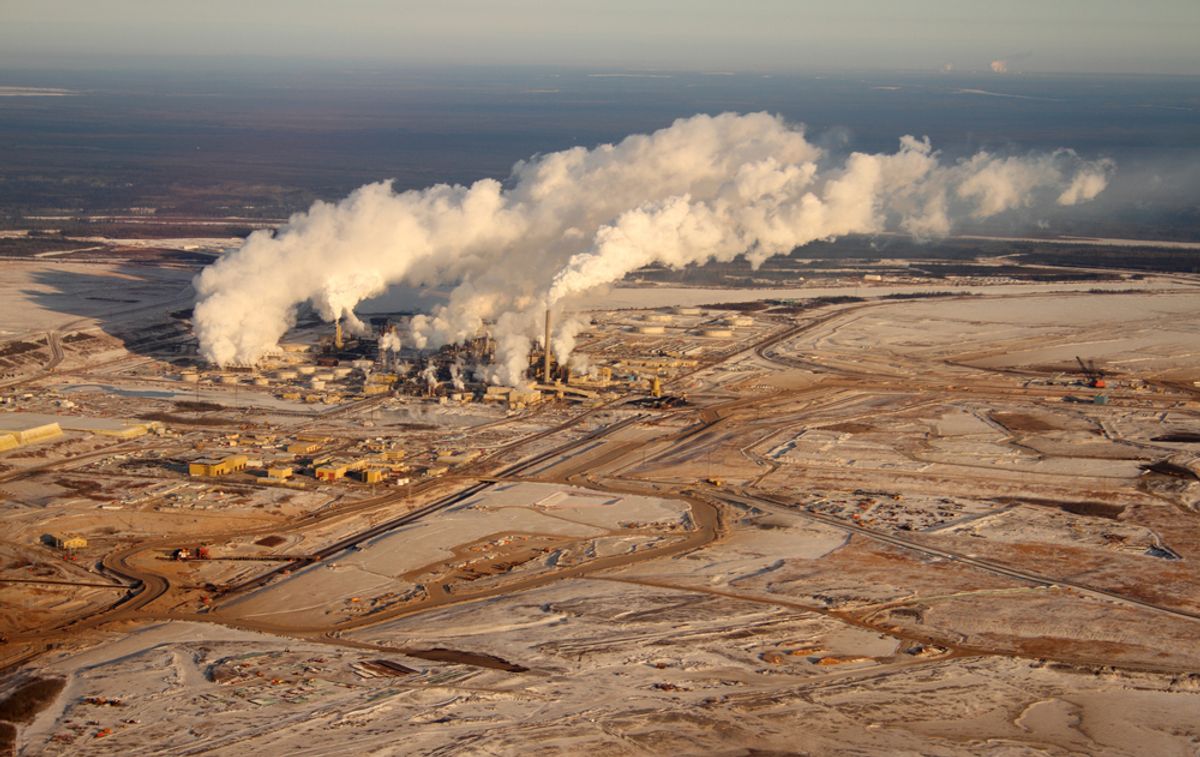If you're not very familiar with Canadian politics, you might not have realized how big of a deal it was last night when Alberta elected the New Democratic Party into power, overthrowing the 44-year reign of the oil-friendly Progressive Conservatives.
I, being one of those people, was not quite aware. But it's starting to sink in...
[embedtweet id="595782890547458048"]
It's a game-changer for a number of reasons, one of which should have been immediately obvious: Alberta is home to the massive tar sands deposits that the oil industry wants to tap and ship south via the Keystone XL pipeline. And with the changing of the guard, the industry's just lost a top Washington lobbyist -- and is now facing leadership that opposes the pipeline and is committed to reducing the climate impact of oil development.
Here's National Journal on Alberta's former premiers, as compared to new leader Rachel Notley, who's threatened to increase royalties on gas and oil production once crude oil prices recover:
Former Alberta premiers Alison Redford and Jim Prentice were frequent visitors to Washington to promote the pipeline, and touted it as a necessary project for promoting Canada's oil-sands development. Prentice, who served just eight months, visited D.C. in February, speaking at the U.S. Chamber of Commerce, meeting with government officials, and conducting a round of press meetings on the pipeline. Redford (who resigned in March 2014) was no stranger to D.C. In a 2013 visit, she met with Democratic Sens. Heidi Heitkamp of North Dakota and Mary Landrieu of Louisiana, who both backed the pipeline on the Hill.
But New Democratic Party leader Rachel Notley, likely the next premier, isn't going to be lobbying lawmakers in D.C.
Notley has said the project has been too caught up in American domestic politics and that she doesn't plan on promoting it. In an April interview with the Calgary Herald, Notley said there was "no realistic objective" to visiting Washington to discuss the pipeline, and that she'd instead focus on shipping refined crude rather than the bitumen that would be shipped on the pipeline.
It's not the final word on Keystone (nothing's ever the final word on Keystone). TransCanada, for its part, said it will "remain committed" to building the pipeline. But it's one more factor, along with President Obama's noted ambivalence and a plummeting market, that seems to be signaling its increasingly poor prospects of ever becoming a reality.



Shares